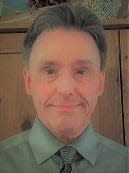How do we define being 'smart' as a human being? The answers are multifold
Most of us like to think that we are smart, or at least smarter than the person in the cubicle next to us at work. But what does this mean: to be bright, gifted, astute, or good at finding questions for “Jeopardy” answers? The notion of IQ often comes to mind. However, many have criticized this measure of smartness as biased and unable to capture the full spectrum of human ability, such as musical or athletic talents.
In a fascinating lecture on TED talks, professor Alex Wissner-Gross of Harvard University contends that human intelligence is not about a particular measurement or unique skillset, but rather about being able to create “options.” … Whaaat! When I first listened to his discussion, I was surprised by this claim. But then I thought about how Darwinian it was, particularly considering recent research about evolutionary processes.
Charles Darwin demonstrated that over long periods of time (think millions or billions of years) species develop survival strategies, but only those that are successful will prevail…in other words, some make it and some (sadly) do not.
Or, like a popular proverb, it can be said that history is written by the evolutionary winners.
But what is interesting about these new insights is that the adaptions that are produced are not purposeful but rather entirely random. We cannot know in advance what type of mutation will turn out to be the best and so all possibilities need to be considered and tested. Hence, if being smart means surviving, then we need to think about having many paths to succeeding and keeping our options open when confronted with an unknown future.
This insight has some important implications; for example, it suggests that we should not plan for a single job but instead prepare for multiple careers; we should not invest in a single stock but instead have a well diversified portfolio; we should not think about having only one source of retirement income but rather many pots of money from which to draw in our later years.
Considered in this light, the future is not a straight line but a meandering route that needs to be navigated by trial and error. This entails leaving our options open and not being cornered into an evolutionary (or career, investment and retirement) dead end, by ensuring freedom of action. Getting smarter means both knowing about and creating options to deal with what is to come.
Ron Messer holds six university degrees and teaches at Kwantlen Polytechnic University, located in Vancouver, British Columbia. He does not think of himself as a writer, but rather as an interpreter of “big ideas” and how they apply to our personal lives. He can be reached at ron.messer@kpu.ca

This article originally appeared on Palm Springs Desert Sun: How do we define being 'smart' as a human being? The answers are multifold
